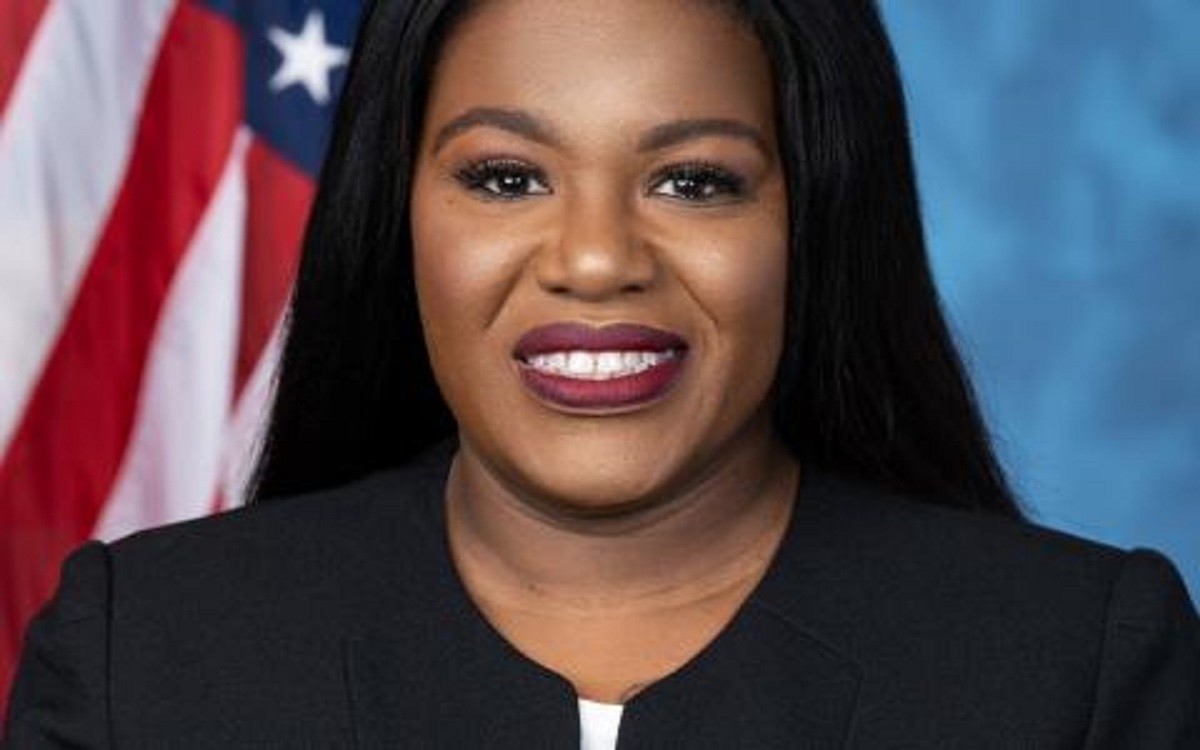As an organizer working for clean energy and environmental justice in St. Louis, Missouri, my work is centered around supporting women, especially women of color, to take back their power. I want to change who gets to represent our communities and our perception of leadership. We deserve leaders that reflect and are accountable to our communities and grassroots movements for change.
Freshman Congressional representative from Missouri, Cori Bush, is an example of what that new style of leadership looks like. She has always been accountable to our community, from demanding justice for Black lives in the streets of St. Louis to her work as a nurse, where she witnessed the impacts of environmental racism and injustice firsthand.
St. Louis is one of the most segregated cities in the country. It has a long history of redlining, exclusionary zoning, and urban planning—all of which continue today. Resources are still pulled from its Black communities and communities of color into the wealthy, white Central West End, leading to the disgraceful Delmar Divide, where the life expectancy of Black people is 18 years lower than white people who live a few blocks away. Our federal, state, and local government deliberately disinvested in, and devalued, Black communities and other communities of color. As a result, Black community members are more likely to live in areas with fewer parks and trees and more shut-down schools. Black St. Louisans are more likely to live near highways and industrial pollution, and to breathe the polluted air that sends Black children to the emergency room with asthma attacks at 10 times the rate of their white counterparts.
Bush has taken what she learned as an activist and St. Louisan with her to Congress. One of her first acts in Congress was to introduce “The Environmental Justice Mapping and Data Collection Act of 2021.” Cosponsored by Senators Tammy Duckworth (D-IL) and Ed Markey (D-MA), it would map and collect data on the communities most affected by environmental injustice, so the federal government could target them for increased investment.
Bush’s bill would help bring equitable reinvestment into marginalized communities and halt extractive policies. It would provide government agencies the data to fulfill President Biden’s “Justice40” executive action, which calls for 40 percent of “relevant” federal investments to be directed to environmental justice communities. These could be investments in cleaning up pollution, expanding access to clean energy and public transportation, and making homes more affordable and energy efficient.
Having the data to validate our communities’ experiences of environmental injustice is useful in other ways, too. It would help dismantle the systems of oppression that puts Black and brown people at greater risk of environmental harm. With data in hand, grassroots groups will have a powerful new set of tools we can use to question structures of environmental racism that are grounded in white supremacy. We’ll be better able to demand our elected officials do their jobs and address the environmental injustices their constituents live with every day.
This bill would also make the intersections between race, poverty, police violence, and environmental harm a matter of government record. Devaluing certain neighborhoods because its residents are Black, brown, or low-income allows polluters to feel they can spew their toxins with impunity. When our government devalues a neighborhood, it treats residents as if their lives don’t matter either. They’re subject to suspicion, surveillance, and hyper-policing that draws on military tactics and equipment.
Environmental justice communities in St. Louis and elsewhere are living with the consequences of decades, sometimes centuries, of government disinvestment. It is time for our government to reverse course and ensure our communities have the things they need to survive and even thrive. Increased investments in things like public transit and clean energy in communities of color wouldn’t completely level the playing field, of course. But it would bring this country closer to its ideals of equity and justice. It would signal to people whose neighborhoods have been devalued that their lives, and their communities, matter. Tell your representative to become a cosponsor of the bill today.
